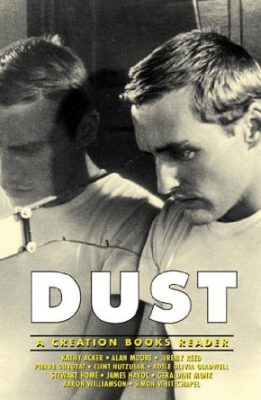 “If you want to shine like the sun, first you have to burn like it.”
“If you want to shine like the sun, first you have to burn like it.”
– Adolf Hitler
“He was marooned in the jaws of a human minefield, and with every step the noose grew tighter.”
– Paul and Anthony Cuneo, quoting sports columnist Jerry Izenberg in the New Jersey Star Ledger
“I am pleased to announce that, although attitudes have improved immensely, the beatings will continue.”
– M. Boots
“When I was a kid I found a pocket dictionary that defined ‘bucket’ as ‘pail’ and vice-versa and realized that no one’s in charge of anything.”
– Daniel Kibblesmith
“Never let the guy with the broom decide how many elephants can be in the parade.”
– Merlin Mann
“It matters not whether you win or lose; what matters is whether I win or lose.”
– Weinberg
“Some day you will be old enough to start reading fairy tales again,”
– CS Lewis
“No man who ever held the office of President would congratulate a friend on obtaining it.”
– John Adams
“He who laughs last thinks slowest”
– Anon
“Any word you have to hunt for in a thesaurus is the wrong word.”
– Stephen King
“You can’t do anything about the length of your life, but you can do something about its width and depth.”
– H.L. Mencken
“I am not sure that I exist, actually. I am all the writers that I have read, all the people that I have met, all the women that I have loved; all the cities I have visited.”
– Borges
No Comments »
Creation is destruction waiting to happen. It’s also a publishing house. Founded in the late 80s, Creation Books started as a semi-endorsed offshoot of Creation Records and became one of Britain’s foremost underground publishers, releasing bug-eyed normie-baiting stuff of the sort that got David Britton sent to prison a few years previously under the Obscene Publications Act.
As the millennium turned, the company changed focus, and became largely a reissues house for books out of copyright (or books whose authors were incapable of disputing potential violations of such). In 2013, the company closed after 25 years in business. Lest you think this is a case of all good things coming to an end, Creation’s demise may have been accelerated by a wave of accusations of fraud and intellectual property theft against sole proprietor James Williamson. He returned fire online, protesting his innocence. It reminds me of the joke about Bill Cosby, and how it’s yet another case of his word against her word, and her word, and her word, and her word…
Dust is one of several Creation samplers/readers, containing excerpts and selections from Creation’s 1995 stable of authors circa. The publisher’s bailiwick was Gernsback-era pulp horror, French decadence, underground art films, assorted counterculture weirdness, (questionably translated) Japanese manga, and general drunken insanity. Imagine going to see Joseph Merrick at the Grand Guignol at the Bowery in Rhode Island after getting off the train at Akibahara Station: that’s the Creation experience, a kaleidoscopic drug-trip of semi-literary nonsense. If you enjoy that sort of thing, you’ll like Dust.
Kathy Acker shoves her clitdick into historical fiction with “I Become a Murderess”, retelling archetypal stories from the perspective of a rage-filled woman. Not bad. Pierre Guyotat gives us an explosion of words from Eden Eden Eden: brutal language-rending writing that picks up where Octave Mirbeau and Georges Bataille left off. Your eyes will unionise and demand overtime.
Much of the book is underground poetry from writers like Aaron Williamson, Geraldine Monk, and Jeremy Reed. A Williamson’s probably the most talented of the bunch. He’s deaf, which may have refined his aesthetic sense (vide Borges, Goya, etc.)
James Havoc (James Williamson’s pen name) contributes three pieces. “Mauve Zone” is an excerpt from his novel White Skull, detailing bloody adventures on the high seas. The other two are fragments that never have or will see completion. Adele Olivia Garcia (Williamson’s girlfriend, I’ve heard) writes a ton of stuff. She’s completely unreadable.
Alan Moore delivers “Zaman’s Hill” from the collection Yuggoth Cultures (as well as The Starry Wisdom). Good story, but short. Stewart Home contributes some unmemorable sleaze and sin – I found it difficult to tell whether he’s endorsing 90s corporate feminism or mocking it. Simon Whitechapel’s “Xerampeline” was strange but interesting. It’s like a Buñuel film, switching gears between shocking violence and erudite artistry, laving Corinthian columns in blood.
Not everything in it is great, but if you want to quickly experience a large number of Creation authors, I’d recommend Dust ahead of Starry Wisdom if you can find it cheap (although Starry Wisdom is far superior as a work of literature). And if you can’t find it cheap, well, your financial loss is yet another way of getting the Creation Books experience.
No Comments »
 Humanity’s most pointless endeavor: trying to get girls to like boy stuff. At least Prometheus is getting some acupuncture out of his deal. At least Sisyphus is getting in a workout.
Humanity’s most pointless endeavor: trying to get girls to like boy stuff. At least Prometheus is getting some acupuncture out of his deal. At least Sisyphus is getting in a workout.
In 1973, Playgirl was conceived as a female-friendly riposte to male-aimed porn magazines. The magazine ended up with a loyal readership…of gay men.
In 1998, Powerpuff Girls was launched as an action-focused cartoon that gave girls butt-kicking role models. By 2002, 70% of its TV audience was male.
More recently, girl-aimed My Little Pony attracted a rather odd male fanbase that disturbs Lauren Faust and almost everyone who works on the show. (I’m trying to find that Tara Strong twitter reply where she say something like “no, you can’t have sex with an animated horse”)
I think a lot of people who work in TV have the arrogant belief that they’re the shapers of public taste. When f*m*n*sts get involved, that manifests as ideas that media is brainwashing young girls, and that girls only play with Barbie because they we didn’t give them Gina Rinehart dolls, or something. If girls seem any different to boys, it’s the fault of TV shows and toy companies. We’ve gotta fix this right now. No more pink toys. No more girls shows that focus on romance.
All such attempts fail, but let’s assume the premise is correct. If young minds are malleable to such a degree, why stop there? We could easily be building a race of superhumans.
Lovable “slacker” characters should be banned from TV. Seriously. They’re clearly a bad influence. No more Homer Simpson or Beavis and Butthead. All TV characters should be type-A overachievers who go to church and never forget to call their mothers. We’ve got impressionable young brains watching this stuff, and we can’t allow them to be lead astray.
No more villains and crimes depicted on TV, either. Maybe we should have Batman putting the fear of God into people who pick their nose or chew with their mouth open. Obviously TV is the fount of all human behavior, so if we accomplish this we can eradicate crime in one generation. That was easier than I thought.
Obviously, humans have no biological limitations, it’s all cultural. TV has to teach kids to dream big. We should show crippled kids NBA matches, and triathlons. Maybe it will motivate them to be less crippled. It’s worth a try, surely.
(I’ve noticed though, that nobody gives much of a damn about negative stereotypes about boys. Nobody thinks Beavis and Butthead is a misandrist conspiracy to discourage boys from being ambitious. They flip shit when Barbie says “math is hard”, though. I agree with Barbie. Math is hard.)
No Comments »
 “If you want to shine like the sun, first you have to burn like it.”
“If you want to shine like the sun, first you have to burn like it.”

